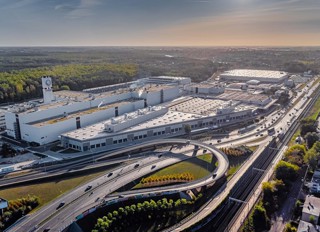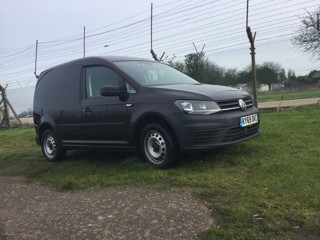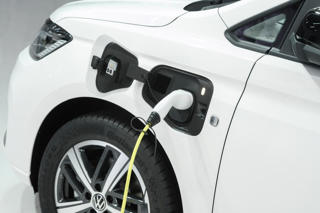In May and June, Fleet News surveyed all the major manufacturers to find out how they were responding to the coronavirus pandemic, how they are supporting their fleets customers and their views on the type of impact it would have on the fleet sector.
The resulting article was published in the June edition of Fleet News.
Here is Volkswagen Commercial Vehicles response.
Fleet News spoke to Claire English, Volkswagen Commercial Vehicles head of fleet (answers as at 20/5/20)
How are you and your team staying operational in times of Covid-19?
The core fleet team were already used to working remotely and using tools such as Skype so the transition was pretty smooth, and apart from reducing the miles driven.
We know it’s crucial to keep in close touch with customers in challenging times, so we’ve been keeping them up to date on operational issues, from servicing through deliveries to new vehicle orders, as well as coming up with solutions to help them work through issues affecting their businesses.
With a reduced network for service and repair and limited delivery options, we’ve had to be innovative and it’s worked well.
What action are you taking to support fleets during the Covid-19 crisis?
We’ve been proactive throughout the crisis to ensure we understand what our customers need and challenged ourselves to come up with solutions to keep their businesses moving.
This has included delivering vehicles to support keyworkers, providing additional loan vehicles, or dedicating mobile service clinics to deliver safe and efficient maintenance (we have over 60 vehicles supporting NHS, associated services and foodbanks).
While the customer service centre transitioned from office to working from home the fleet team also acted as primary point of contact for all fleet customer care queries – to ensure any customer requirements during this time were met.
The team also advised customers on van centres which were still open for aftersales work – and supported them with their specific requirements.
What proportion of your retail network remained open for SMR business during lockdown?
Throughout the crisis we had sites open to deliver essential SMR work for fleets, either at van centres, other Volkswagen Group sites, or via mobile service clinics.
The vast majority of our network is open again now, for essential and general work, albeit with some changes to process and capacity while we adapt to new measures required for social distancing and to ensure the safety of our staff and customers.
We were monitoring retailer availability throughout and shared updated trackers with our contract hire and leasing partners and fleet customers. What’s more over 40% of our TPS operations remained open to ensure parts supply for the logistics and key workers that kept Britain moving.
Will Covid-19 have a bigger and longer lasting impact on our industry than the financial crisis in 2008? Please explain your view.
It’s really too early to say. Obviously, the key month of March as well as April and May are heavily impacted, simply because we weren’t allowed to handover vehicles at showrooms, and production and supply chains were paused.
But that said, we have stayed in touch with customers through our corporate fleet and van centre teams, we have stock vehicles and customers have been continuing to place orders, and we are confident there is ongoing demand for LCVs.
How much of a decline in total market fleet sales are you forecasting this year?
Again, it’s very early to say. SMMT predictions see the LCV market finishing down around 28% but with a healthy bounce-back in 2021. What’s positive for now is fleets are continuing to order vehicles and, given the keyworker and delivery driver requirements for vans, there are optimistic signs.
Many customers are looking to take delivery of their vehicles as soon as possible after lockdown. The fleet team are working closely with customers, supplying van centres, third parties and convertors as appropriate – to ensure these vehicles are progressed and delivered to our customers as quickly as possible.
Please outline your exit strategy and how you believe the way business is carried out in future might change – the so-called ‘new normal’.
I think what’s interesting is how quickly individuals and businesses have adapted to ‘ever-changing normals’! Each week, and sometimes each day, brings a new rule or change to how we can behave, interact and transact, and we’re evolving all the time.
If I had to make three predictions I’d say: we’ll not go back to driving the miles for fleet business meetings that we used to – we can be more efficient and benefit the environment too; we will continue to work extremely closely with our fleet customers to get pipeline vehicles delivered quickly and find stock vehicles to meet any new requirements; and the sector will bounce back – now more than ever we see the need for vans in front line services, and we will continue to adapt our services to accommodate.
Will we experience a break on the development of MaaS and fleet electrification?
Purely due to the disruption in business working hours and factory shutdowns, we might see a short-term delay, but electrification and MaaS are key to the sector’s long-term future and will continue to be prioritised.






















Login to comment
Comments
No comments have been made yet.